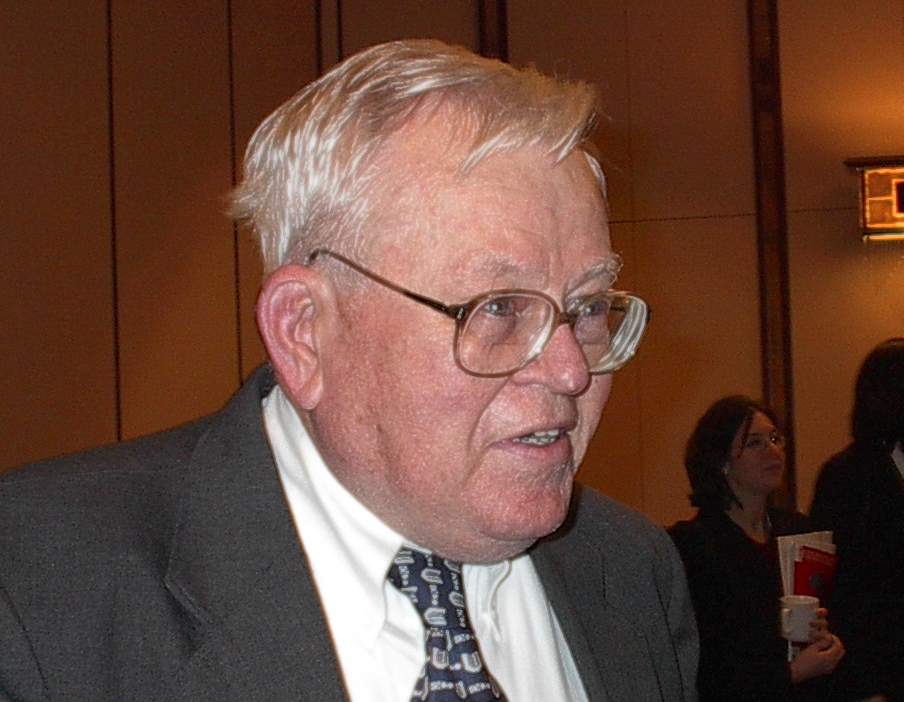Tonsor – A Few Paleo-reflections in Time’s Mirror
Stephen J. Tonsor
“A Few Paleo-reflections in Time’s Mirror”

40th
Gala! Anniversary Meeting
The Philadelphia Society
Chicago, Illinois
May 1, 2004
First let me say what a pleasure it is to be with all of
you even at something of a distance. I have known a few of you for a total of
fifty years. A few of you were still in the fever-swamps of Left-liberalism when
those first brave pages of National Review were published. Is there
something to be learned from the experience of fifty years? Has that Paleolithic
age nothing to say to us or to the generation of heirs who now come to the fore?
As one grows older, one becomes more and more the self
given by time and history. One becomes, in short, increasingly paleo. At twenty
we are still in rebellion against our heritage. At eighty we often ask ourselves
whether or not we have been true to that heritage.
To be "Neo" is to live in danger. Mutant types in
culture and in biology are, as any sophomore student of biology knows, nearly
always fatally flawed and prone to an early and ugly demise. Benign mutations
are rare and the type out of the past has a persistence of the color of
Mendell’s peas—and this for the very good reason that the type has enabled
survival.
I would like to place these observations in the context of
the life and generous spirit of one of Conservatism’s founders, my friend, Henry
Regnery. Few men have been as charitable, even when, as I reminded him, someone
was attempting to do him in. I would like to discuss his gifts to the present in
terms of those important areas of paleo life: community, culture, and politics.
Let us begin with community. Henry loved Chicago. It was
his kind of city-or at least he tried to make it his kind of City. Those of you
who have read his autobiography "Memoirs of a Dissident Publisher" or
"Creative Chicago" or "A Few Reasonable Words" know that
Henry’s life and thought were bound up with this city. It was no accident that
his politics reflected His commitment to Chicago; the University of Chicago, the
Chicago Symphony, on whose board of directors he served for many years, the
Newberry Library, The Chicago Conservatory of Music, and that important club,
the Cliffdwellers. These were institutions in which the Chicago community was
reflected in a distinctive culture.
His cultural identity was not that of an observer only but
that of an active participant. Henry was a gifted amateur musician. He wrote
well but not always easily and above all Ole enjoyed the company of the
culturally creative. He hoped, for some years, to write a biography of Robert
Maynard Hutchins. He had participated with Hutchins in the "Great
Books" movement and he had published that great landmark of Chicago culture
in the early ’50s, Measure. Leafing through the pages of Measure
one realizes what a special place Chicago was in those days. Henry thought for
some years of writing a biography of Theodore Dreiser. This was an enthusiasm I
could never quite understand though, to be sure, Dreiser was a mid-Westem
German.
For Henry, community always had an institutional and a
personal location. That explains his enthusiasm for the Cliffdwellers, and the
Club’s founder, Hamlin Garland. This explains why community was for him personal
rather than simply abstractly institutional. This also tells us something of the
quality of his political commitment.
Politics are always derivative from community and culture.
Henry’s background and education were German. His years of study at MIT, Harvard
and Bonn put him in contact with the best of pre-Nazi and anti-Nazi Germany. The
community around the journal Measure included Otto von Simson, Hans
Rothfels, and Arnold Bergstraeser. These men were the most evident members of a
larger post World War II group of German intellectuals who played a key role in
the cultural and political rehabilitation of Germany. Henry published all of
them in the early books and pamphlets of the Henry Regnery publishing company.
He published, moreover, the best of German spirituality in the works of Romano
Guardini and Josef Pieper.
American Conservatism was, in the early 1950’s, still only
a scattered band of cultural and political malcontents. Henry’s publication in
1953 of Russell Kirk’s, The Conservative Mind provided these disparate
elements with what Henry called a "unifying concept. " He had
previously published William F. Buckley’s God and Man at Yale and Buckley
was, in the years following to give leadership through National Review to
the Conservative movement. You will note that the key to this Conservatism was
communal and cultural rather than abstractly political or economic. Randian
Libertarianism and Liberal economic determinism were never a serious part of the
Conservative movement.
Moreover, the participants in this movement were a band of
friends. Henry and Eleanor Regnery entertained all of them in Chicago and at
their country place in Three Oaks, Michigan with wonderful food, German white
wine and endless, improving conversation. Economics and political theory were
important but derivative. Henry had studied with Joseph Schumpeter but his
personal friendships were with people such as Gerhart Niemeyer, Richard Weaver,
Wyndham Lewis, and Roy Campbell. Willmoore Kendall was an errant comet who
strayed in and out of the sun’s orbit.
Henry’s long and generous life should remind Conservatives
of who they are and where they have been. It should return them to their common
roots, their paleo-selves and to the unassailable achievements of community and
culture which characterized this movement. We owe Henry a great debt which I
fear may be lost in the klaxon-din of those who call themselves
Neo-Conservatives.
